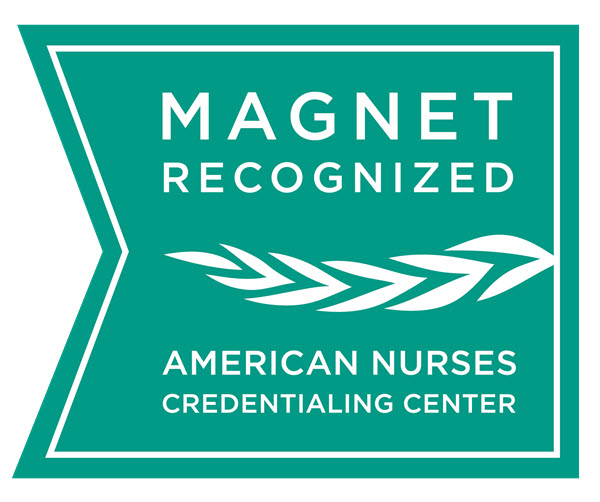Nurses are always in the front line. They are the people who directly assess, provide care and evaluate patients. Because of how valuable their work is, they should feel empowered and encouraged to perform their job successfully.
But, are they?
Bad news:
Because of nursing shortages and cost-cutting, a lot of hospitals are requiring nurses to work more hours than they need and more shifts that they want. This inevitably leads to burnout and more nurses quitting the job.
This is one of the reasons why institutions should strive hard to earn a Magnet status. It’s one of the best ways to measure and provide a better quality of care for the patients by promoting a more positive working environment for nurses and excellence in the practice.
Now, before we go any further, here’s the answer to your question:
What Is A Magnet Hospital?

The Magnet status isn’t just a fancy name. Frankly, you can think of it as a dream working environment for nurses.
A magnet status is only given to hospitals that deliver excellent nursing care, where there are a high job level satisfaction and low turnover rate for nurses. Nurses in these hospitals are also involved in collecting data and making decisions when it comes to their patients.
Nursing leaders highly consider what their staff has to say and they encourage them to voice out their thoughts and be more proactive in advancing their practice. Magnet hospitals create a means for nurses to have a better working relationship with other personnel.
Technically speaking, a Magnet status isn’t like any ordinary award. It’s only given to organizations that are able to display the 14 forces of magnetism, known today as the 5 model components. This includes:
- New Knowledge, Innovations and Improvements
- Structural Empowerment
- Transformational Leadership
- Exemplary Professional Practice
- Empirical Outcomes
How To Be A Magnet Hospital
The process begins by applying for a magnet status. After that, there should be a written documentation highlighting both quantitative and qualitative evidence on the quality of patient care as well as outcomes.
If your hospital is able to get a high score in the documentation, there will be an on-site visit to thoroughly assess in the institution. After the assessment, the Commission on Magnet will review and do a complete report to find out if your hospital is worthy of getting a Magnet status.
The whole process is rigorous which explains why only 6% of the hospitals in the US have this status. This translates to 389 hospitals.
The Problem with Magnet Status
When there are more happy nurses who are able to deliver high-quality care, you should expect an institution to have more revenues, right?
Well, you bet.
In a study by the Robert Wood Johnson Foundation’s Interdisciplinary Nursing Quality Research Initiative, it’s determined that getting a Magnet status can actually increase hospital revenues, in addition to paying for itself. The hospitals involved in the study were able to increase their revenues from $1,229,770 to $1,263,926 annually
These numbers are due to the shorter length of stay of patients as well as improved outcomes. Lower operational costs, reduced occupational injuries and better patient safety are factors, too.

See Also: 5 Crucial Tips for Patient Safety Week
Apart from increasing revenues, these exact things can also contribute to a better reputation for the institution. This can further increase revenues as more people get attracted to the quality of care they can receive there.
But, there’s a catch.
It will take approximately 4.25 years before a hospital can fully develop and put into practice a positive environment that can greatly improve patient care. It can also take as much as $2,125,000 to complete the process. Because of the serious time and amount of money involved, not all hospitals are able to work on getting Magnet status.
The Benefit of Magnet Hospitals for Patients
Obviously, since there are more dedicated nurses, Magnet hospitals offer the highest quality of patient care. There’s also specialization which can help nurses cater to wide range of patient needs.
All in all, magnet hospitals were found to have:
- Lower thirty-day mortality rates
- Fewer deaths after a post-operative complication
- Lower failure-to-rescue rates
- Better surgical outcomes
Should You Work for A Magnet Hospital?
Magnet hospitals tend to be very strict about who they accept into the institution. To begin with, they mostly prefer registered nurses with a BSN degree.
See Also: Top 10 Cheapest RN to BSN Programs Online
Apart from that, you also have to show them how serious you are about developing your profession and furthering your career. Magnet hospitals favor nurses who work really hard to excel in their field.
You can attach any leadership awards or any other recognitions to your resume to highlight what you are capable of and what you can do for your career.
If the strict standards of Magnet hospitals intimidate you- don’t be.
You actually have a lot of high-paying opportunities when you get the opportunity to work there. You will get the chance to undergo training that adheres to the highest standards which can boost your competitiveness in your field. This is an advantage you can take with you when you move forward in your career.



















